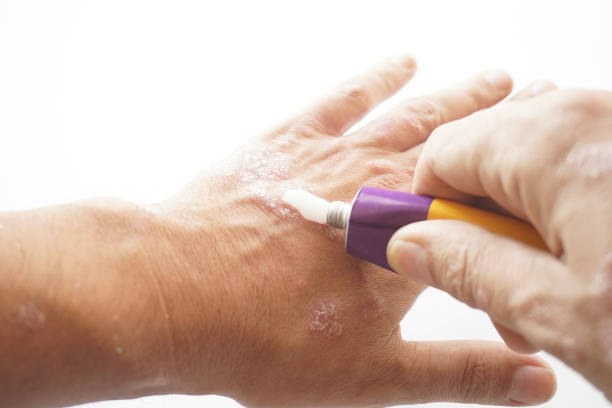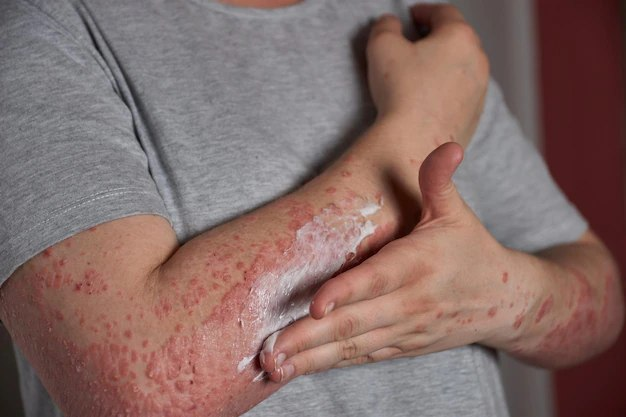What occurs before and after steroids



It is important to know what happens before and after steroids are taken to have a complete understanding of the potential consequences of their use. Before taking any steroid, it is essential to understand what it is and how it will affect the body. Additionally, it is important to discuss any allergies one may have, as some steroids can cause allergic reactions.
This blog post will explore the effects of steroids before and after use and how to approach any potential issues best.

Steroids are drugs that reduce inflammation and treat various conditions, such as allergies, asthma, and autoimmune disorders. They are also used to increase muscle mass and strength, as well as to improve athletic performance.
Knowing the different types of steroids available and their specific uses is also essential. The two types of steroids: are corticosteroids and anabolic steroids.
Corticosteroids, such as prednisone, commonly treat various conditions, including asthma, allergies, and arthritis. These natural steroids work by reducing inflammation in the body and suppressing the immune system.
On the other hand, anabolic steroids are synthetic versions of the male hormone testosterone. Anabolic steroid users are often athletes and bodybuilders who use these anabolic steroids to build muscle mass and improve athletic performance.

Taking steroids can be dangerous and have long-term side effects, so it is important to be informed about the risks. Before taking steroids, it is essential to consult a healthcare provider to determine whether they are appropriate for your specific situation. The healthcare provider will consider factors such as the severity of your condition, any other medical conditions you may have, and any medications you are currently taking.
Suppose a healthcare provider determines that steroids are appropriate for you. In that case, they will discuss the potential risks and benefits of taking the medication and provide instructions on how to use it safely.
Once a doctor has prescribed a steroid, it is crucial to take it exactly as directed. Some steroids are taken orally, while others must be injected. It is important to take them as the instructions and not exceed the recommended dosage.


After taking steroids, it is essential to follow the instructions provided by your healthcare provider. This may include taking the medication for a set time, having regular checkups, and monitoring for any side effects. It is crucial to monitor your body to ensure that any side effects are monitored and addressed. You should consult your healthcare provider if you experience unusual symptoms or side effects while taking steroids. You should look for withdrawal symptoms, as some steroids must be tapered down before stopping the medication.
Additionally, getting enough rest and taking other medications you may have been prescribed is important. Following these steps will help you stay healthy while taking steroids.
Steroids are potent medications that can help treat a variety of health conditions. However, before using them, it is crucial to understand the potential side effects that can occur. If you are taking steroids, it is important to follow your healthcare provider's instructions and take the lowest dose of steroids that is effective for you. You should also look for potential side effects of steroids, including an increased risk of infections. You must contact your healthcare provider immediately if you develop an infection while taking steroids.
To help minimize the risk of infection while taking steroids, it is important to practice good hygiene by washing your hands frequently and avoiding close contact with people who are sick. It would be best to avoid unnecessary exposure to infections, such as by avoiding crowded places or people who are sick. If you are vaccinated, ensure your vaccinations are up to date.
After taking steroids, monitoring your body for any changes is important. Following a healthy nutrition plan, adequate hydration, and regular exercise are also important. Many people use steroids to improve their physical appearance and performance, so it is important to ensure that you take the proper amount and use them safely.

Common side effects of steroids include an increased risk of infection, increased appetite, weight gain, and changes in mood or behaviour. Some individuals may also experience changes in skin colour, high blood pressure, liver disease, and blood sugar levels. Please consult your doctor before beginning a steroid regimen to ensure that the risks are understood and that the benefits outweigh them. After steroids have been taken, it is important to monitor for any side effects and to contact a doctor if any occur. Additionally, some individuals may need additional medications to reduce side effects and maintain a healthy lifestyle.
Other side effects may include hair loss, acne, and an increased risk of developing certain types of cancer. Steroid use should be carefully monitored and only used under the supervision of a medical professional. Long-term use of steroids can have serious health consequences, so users should be aware of the risks before engaging in this behavior.
Anabolic steroid use should also be monitored as it has side effects when misused.
Before taking steroids, you should:
Talk to a doctor or other healthcare provider to see if steroids are right for you
The healthcare provider will consider your health and any other medications you are taking
The healthcare provider will explain the risks and benefits of taking steroids
After taking steroids:
Follow the instructions on steroid doses, use, and for how long to take the medications given by the healthcare provider
This may include taking the medication for a certain amount of time and having regular check-ups
Watch for any side effects and report any unusual symptoms to the healthcare provider
Do not stop taking the medication without talking to the healthcare provider first, as this can be dangerous
Order our Oestradiol blood test today to learn more about your hormone function.
Want to learn more about steroids? Read about Dianabol side effects or the side effects of Anavar on our sports performance blog.
Plus get the inside scoop on our latest content and updates in our monthly newsletter.